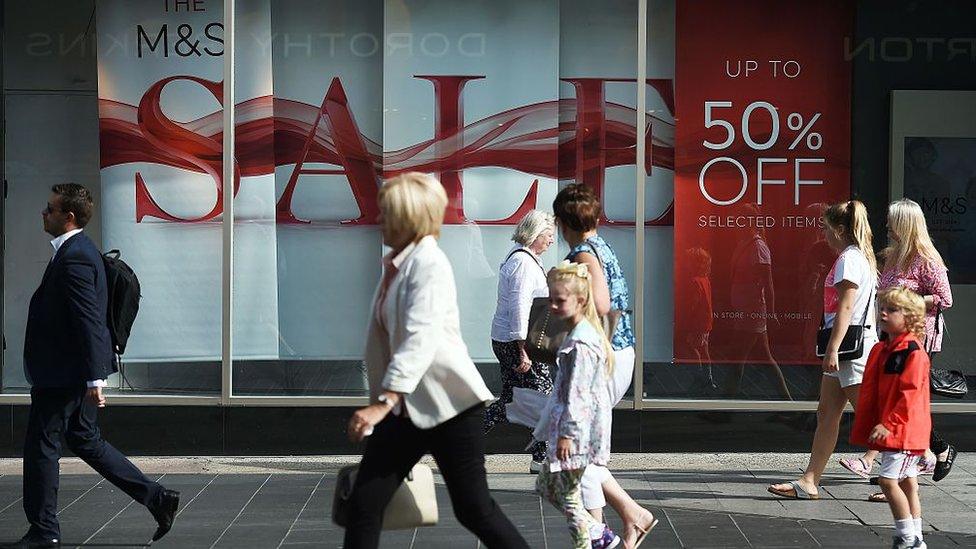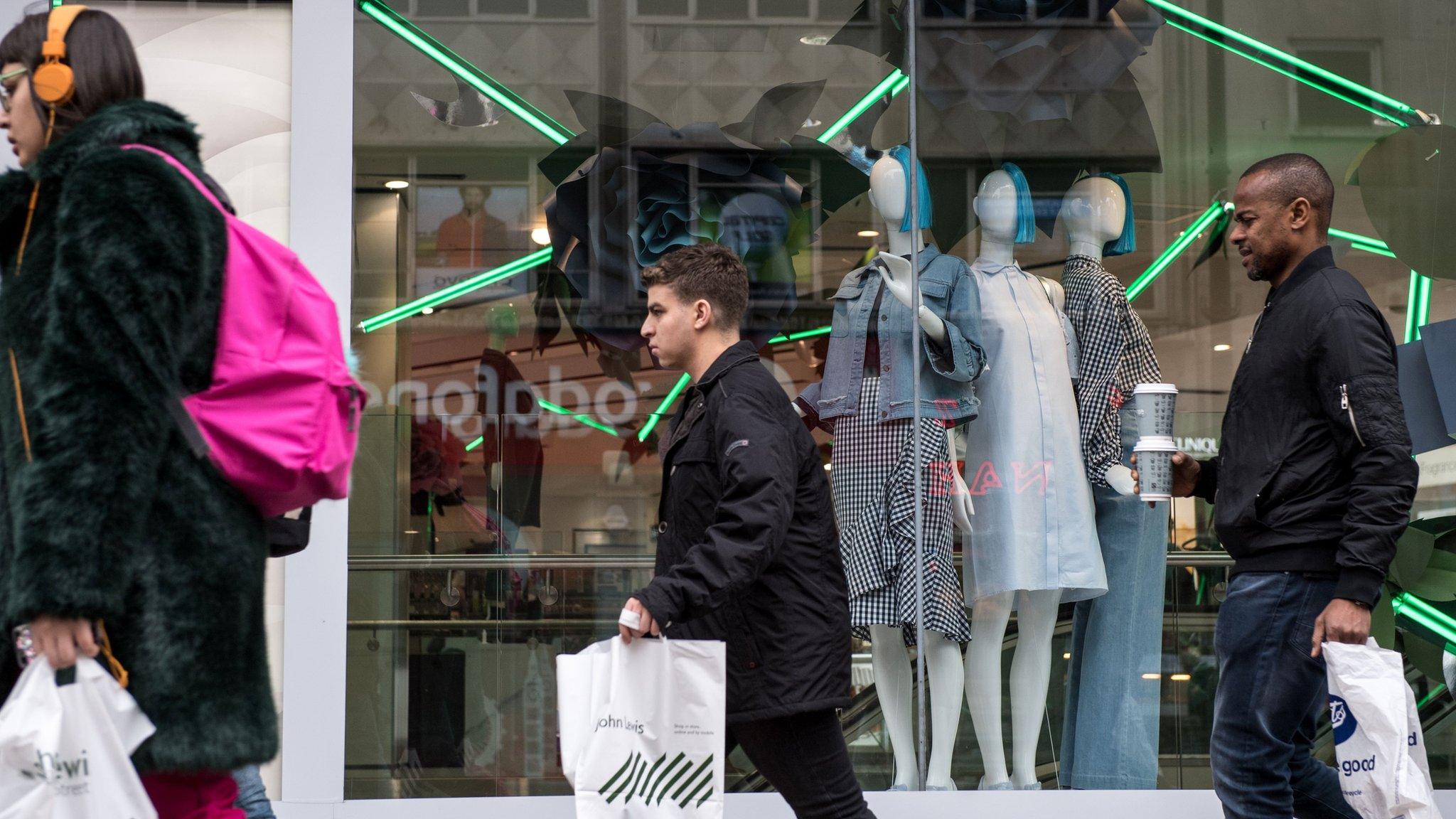Biggest fall in UK retail sales in seven years
- Published
- comments

Demand fell for all types of goods except for textiles, clothing and footwear
UK retail sales posted their biggest quarterly fall in seven years in March, as the prices of everyday goods continued to climb.
By volume, sales in the first quarter of this year were down 1.4% on the preceding quarter, and down 1.8% compared with February 2017, according to the Office for National Statistics.
They fell across all types of shop except textiles, clothing and footwear.
But the total amount spent was still higher than a year ago.
'Clouds gathering'
Kate Davies, senior statistician at the ONS, said: "This is the first time we've seen a quarterly decline since 2013, and it seems to be a consequence of price increases across a whole range of sectors."
The ONS said, external average store prices had increased by 3.3% on the year, the highest growth since March 2012.
The largest contribution came from petrol stations, where prices were up by some 16.4% on the year.
Keith Richardson, managing director of retail at Lloyds Bank Commercial Banking, said that after record growth in 2016, the retail sector was slowing down.
"These figures suggest that the clouds are now gathering over British consumers," he said.
"Rising food and petrol prices, together with slowing real wage rises, appear to be finally prompting shoppers to tighten their belts, while the value of the pound continues to put pressure on retailers' costs."

Analysis: Jonty Bloom, BBC Business correspondent
Since the credit crunch, the British consumer has been acting rather like some Impressionist artist starving in a Parisian garret - every time they do find some money they have spent it - not on food - but on the good things in life.
But retail sales fell sharply in the first three months of the year, that was the first quarterly decline since 2013. It was also the sharpest fall since 2010, when a temporary cut in VAT came to an end.
That contraction seems to have been caused by the recent increase in inflation, with prices now increasing at almost exactly the same rate as wage rises. Inflation is also expected to increase further in coming months as the fall in the value of the pound pushes up import prices.
That is worrying for the British economy as it has been the resilience of consumers that has been a principal factor in keeping economic growth going.

Chris Williamson, chief business economist at IHS Markit, said the trend appeared to have continued into the second quarter.
"The latest IHS survey data showed the amount of cash that households had available to spend fell in April to the greatest extent for two and a half years," he added.
"Spending was supported by households eating further into their savings and taking on more debt [which] is clearly unsustainable in the long run".
There were some bright spots in the ONS figures, with the amount spent on textiles, clothing and footwear up by 2.5% from the preceding quarter.
Online sales also continued to rise, climbing 19.5% in the 12 months to March and up 0.5% compared with February 2017.
- Published23 March 2017

- Published3 February 2017
